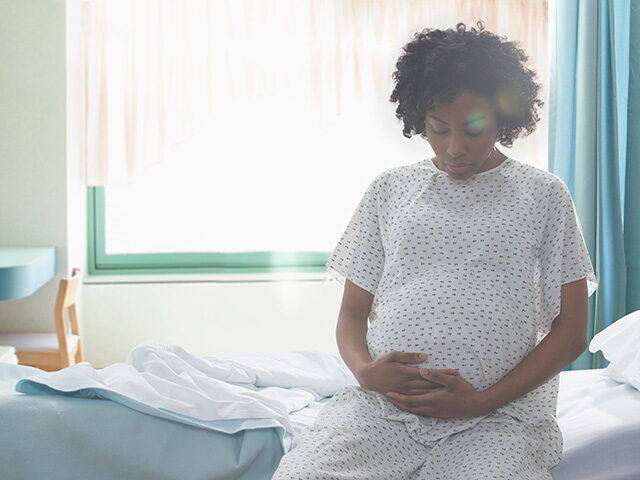The once-reputable Lancet medical journal warned that “Black women in the diaspora are at risk of experiencing obstetric racism” in its latest issue released Saturday.
“Birthing experiences and perinatal care are generally worse for Black women than white women,” Dr. Lioba Hirsch, a lecturer in social anthropology at the School of Social and Political Science, University of Edinburgh wrote, adding that we have known this “for some time.”
The adverse effects of staffing shortages and underfunding on child and maternal safety “increasingly put both the birthing person and the baby at risk, especially when the birthing person is Black or mixed-race,” Hirsch contends.
The article takes to task the U.K. government for its failure to set a target and strategy to end racial disparities in maternal deaths.
“This refusal to act is a strategy in itself,” the article states, “one that allows the continuation of preventable deaths of birthing people of African descent and their children.”
Moreover, “Black women and birthing people are under-represented in maternal health research and their stories and experiences are made invisible,” it adds, before making some extraordinary claims about the current treatment of blacks by healthcare workers.
“Racially minoritised birthing people often experience discriminatory behaviour by health-care staff,” the article asserted. “Such behaviour can include the denial of pain medication, due to the racist belief that Black people have higher pain tolerances, or rude, disrespectful, and dismissive attitudes.”
“This behaviour can put the health of the birthing person and baby at risk,” it added.
Hirsch recounted her own experience of giving birth in the U.K. and subsequently acknowledged that “it is difficult to identify whether I was treated without respect because of my Blackness or simply because I was a person giving birth,” which would seem to put the entire thesis of the essay in jeopardy.
“To entrust yourself to a medical practitioner is hard, especially when, as a person of colour, you have been conditioned to not ask questions,” Hirsch stated, “to be kind and pleasant and not challenge medical authority.”
In their current state, “maternity services in the UK are failing too many birthing people, especially when they do not conform to white motherhood,” she added.
Whatever the merits of Hirsch’s reflections, there is one area in particular where racial disparity in healthcare is verifiably present: the abortion industry.
A 2020 study in the United States found that abortion is a major cause of death that “disproportionately affects a racial minority.”
The study, which appeared in the Journal of Health Services Research and Managerial Epidemiology, found that “black women have been experiencing abortions at a rate nearly four times that of white women for more than 30 years.”
“The evidence is clear that for many decades Black children in the United States have not had, and do not have today, an equal opportunity to survive until birth.”
Currently, induced abortion is the leading cause of death in the United States and accounts for a disturbing 61 percent of deaths of African Americans, according to researchers from the University of North Carolina at Charlotte.
While abortion accounts just over 30 percent of all deaths in the U.S., it makes up over 60 percent of African American deaths, according to the study published in the Open Journal of Preventive Medicine.
According to the Centers for Disease Control (CDC), between 2007 and 2010, more than 35 percent of the deaths by abortion in the United States happened to black babies, despite the fact that blacks represent only 12.8 percent of the population.
Whatever the intent of abortion practitioners, by functional standards, abortion today is a racist institution, with black children aborted at nearly four times the rate of white children.
Obianuju Ekeocha, an African pro-life activist and author of Target Africa: Ideological Neo-colonialism of the Twenty-first Century, has noted that abortion giant Planned Parenthood not only “has its roots firmly embedded in eugenic racism,” but even today, “we know that Planned Parenthood targets black and other minority communities, having up to 79% of their surgical abortion facilities located within walking distance of African American or Hispanic/Latino neighborhoods.”
In 2018, a Planned Parenthood student group at the University of Florida hosted an event to discuss the racist roots of the organization as well as the eugenics of founder Margaret Sanger.
“Come join Planned Parenthood Generation Action for a panel discussion on the racist roots of Planned Parenthood during Black History Month,” read the Facebook announcement of the event bearing the title “Decolonizing Sexual Health.”
“Our subject is addressing the racist roots of the birth control movement, specifically pertaining to the influence of eugenics,” the post stated. “Margaret Sanger, Planned Parenthood’s founder, is a controversial figure in this conversation because despite her devotion to reproductive rights, she also had beliefs, practices, and associations with eugenics that we acknowledge and denounce, and work to rectify today.”
According to many Planned Parenthood critics, the real problem is the targeting of minority communities by placing abortion services in minority neighborhoods — which seems to fit with the original racist aims of the organization.

COMMENTS
Please let us know if you're having issues with commenting.